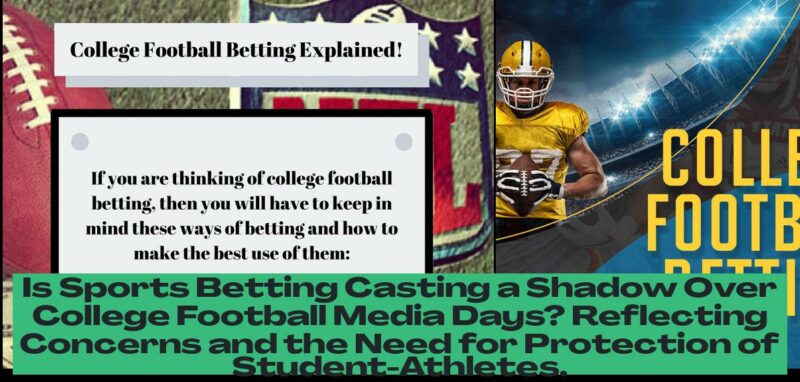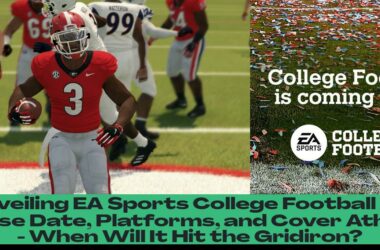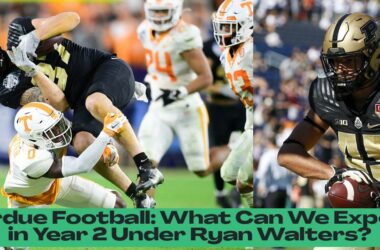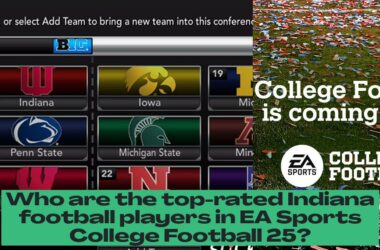College football media days reflect concerns over sports betting
The world of college football is a vibrant tapestry of athletic prowess, passionate fans, and a multi-billion dollar industry. Yet, beneath the surface of gridiron glory, a shadow has emerged, cast by the rapid rise of sports betting. This year’s college football media days, where coaches and players showcase their teams ahead of the season, have also served as a platform for a growing concern: the potential negative impact of sports betting on college athletes and the integrity of the game itself.
The Southeastern Conference (SEC) and the Big 12 Conference, two of the most prominent college football conferences in the nation, have led the charge in expressing these concerns. Their commissioners, Greg Sankey and Brett Yormark, respectively, have publicly addressed the issue, highlighting the need for greater regulation and protection of student-athletes from the potential pitfalls of legalized sports betting.
The concerns are not unfounded. The proliferation of sports betting platforms, both online and in physical locations, has created a complex landscape where the lines between entertainment and exploitation can blur. Coaches and players are increasingly exposed to the pressures of a betting market that can influence game outcomes and even put their personal safety at risk.
The SEC, in particular, has been at the forefront of this movement, with six of its member states having legalized sports betting. This has led to a situation where student-athletes, many of whom are young and inexperienced, are exposed to a gambling culture that can be overwhelming and potentially detrimental.
The impact of sports betting on college athletes can manifest in various ways. One significant concern is the potential for player exploitation. With the rise of “prop bets” – wagers on specific player performances – there’s a risk that individuals could attempt to influence game outcomes for personal gain, putting pressure on athletes to perform in a way that could jeopardize their safety or the integrity of the game.
- College football media days are reflecting concerns over the impact of sports betting on college athletes and the integrity of the game.
- The SEC and Big 12 Conferences are leading the charge in addressing these concerns, emphasizing the need for greater regulation and protection for student-athletes.
- The proliferation of sports betting platforms has created a complex landscape where the lines between entertainment and exploitation can blur, exposing coaches and players to external pressures.
- Six member states of the SEC have legalized sports betting, increasing exposure of young student-athletes to a potentially overwhelming gambling culture.
- One significant concern is player exploitation through “prop bets,” which could lead to individuals attempting to influence game outcomes for personal gain, jeopardizing safety and game integrity.
- Commissioner Greg Sankey has been vocal about the importance of protecting student-athletes from the negative impacts of sports betting, highlighting the need for safeguards in place.
Sankey reiterates need for protection of student-athletes
Commissioner Sankey has been a vocal advocate for greater protection of student-athletes from the potential negative impacts of sports betting. In his opening remarks at both the 2023 and 2024 SEC Media Days, he emphasized the need for states with legalized sports betting to implement robust regulations that safeguard players from harassment and threats associated with gambling activity.
Sankey has pointed out that the online world can be a breeding ground for abusive behavior, particularly after a game with unexpected results. He has highlighted the increased instances of threats and harassment directed at athletes and game officials, driven by individuals who have lost bets and seek to place blame. This underscores the need for strong legal frameworks to curb such behavior and create a safer environment for student-athletes.
Sankey has also stressed the importance of national-level solutions, recognizing that the patchwork of state-level regulations can create inconsistencies and loopholes that leave athletes vulnerable. He has called on Congress to step in and establish clear national standards for college athletics, addressing not only sports betting but also other evolving issues such as name, image, and likeness (NIL) rights.
While the SEC has taken a leading role in addressing these concerns, it’s not just a regional issue. The Big 12 Conference, with its own member states grappling with legalized sports betting, has also expressed similar concerns. Commissioner Yormark has pledged continued support for protecting student-athletes from the negative aspects of sports betting, particularly the potential for prop bets to influence player performance and create undue pressure.
Yormark pledges continued support, while Big 12 players downplay concerns
At the Big 12 Media Days, Yormark acknowledged the need for ongoing collaboration with the NCAA to ensure that student-athletes are shielded from the potentially harmful aspects of sports betting. He expressed a commitment to working with the NCAA to develop solutions that protect players and uphold the integrity of the game.
While the commissioners have sounded the alarm, the reactions from some Big 12 players have been more mixed. Some players downplayed the negative impact of sports betting, suggesting that they are not overly concerned about the pressure it might create. They argued that they are focused on performing at their best regardless of external factors and that the pressure to win is intrinsic to the sport itself.
However, there’s a clear disconnect between the player perspective and the concerns raised by conference leaders. This disconnect highlights the need for greater education and awareness about the potential dangers of sports betting and its potential impact on player well-being.
The debate over sports betting and its influence on college athletics is far from settled. While some players may be dismissive of the risks, the concerns raised by conference leaders and the general public cannot be ignored. The conversation surrounding sports betting in college football is evolving rapidly, and it’s crucial to have open and transparent discussions to find solutions that protect athletes and safeguard the integrity of the game.
The future of college football will be shaped by how these concerns are addressed. Will the NCAA and individual conferences implement robust policies to protect student-athletes from the potential downsides of sports betting? Or will the pressures of a lucrative gambling market continue to cast a shadow over the gridiron? The answers to these questions will determine the future of college football and the well-being of its most valuable assets – the student-athletes who grace the field each weekend.









